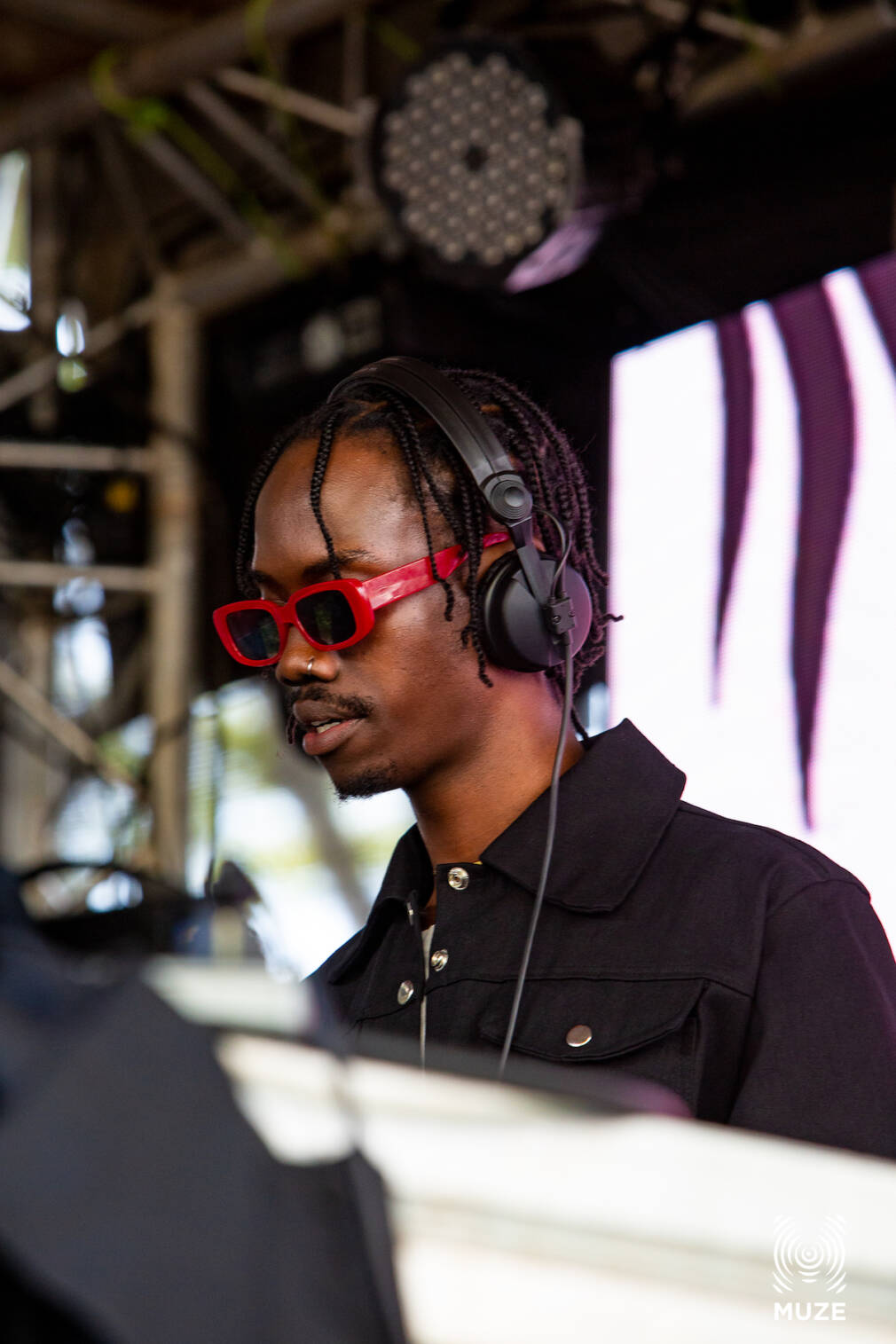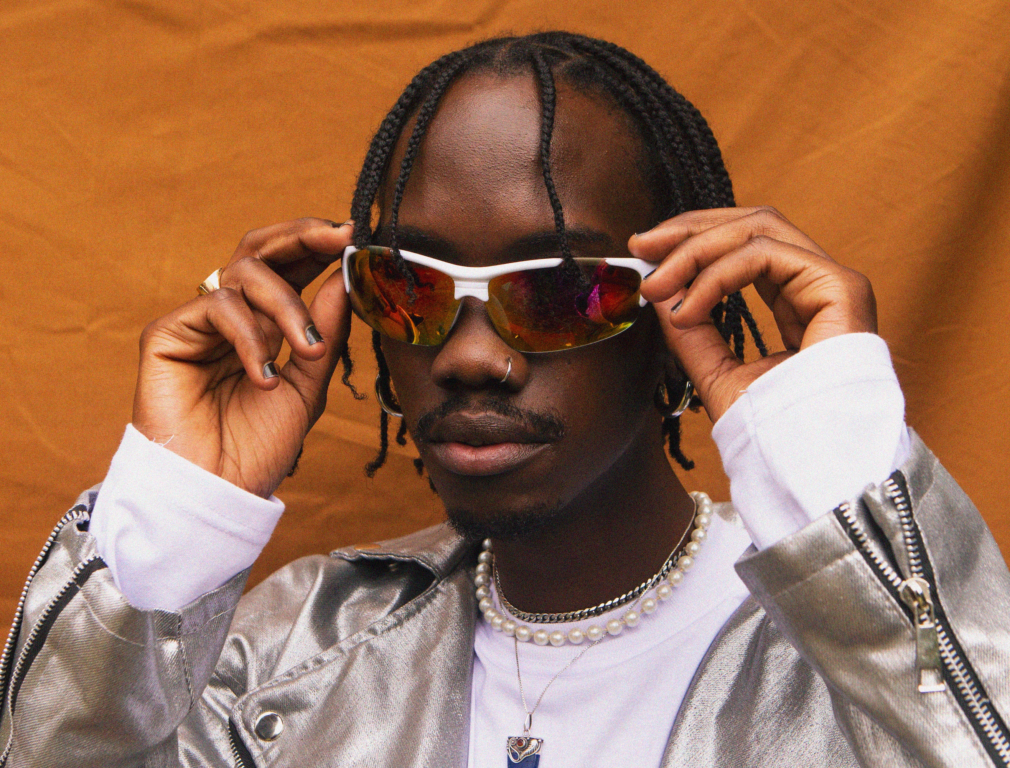Nairobi is a kaleidoscope of people, cultures, and institutions from across the globe engaging and exchanging with one another on a daily basis. This multiculturalism seeps into all corners of its society but perhaps most notably in its creative sectors. Musically, the mainstream radio is dominated by hip-hop, gengetone, and afro-pop influenced by kapuka and rhumba with sounds like drill, afro-fusion, RnB, house, and folk-fusion feeding the city’s alternative audiences. Many pundits have tried and failed to assign a national “sound” or prevailing musical aesthetic to the country. Unlike Nigeria and Tanzania, where the spirit of Afrobeats and Bongo Flava seem to permeate most crevices of their musical arenas, in Kenya it is the spirit of multiplicity that prevails.
Hiribae Wonyoike is a child of this eclecticism. Born and raised in Nairobi on a musical diet of Fela Kuti, Kaytranada, and various forms of jazz, this DJ, producer, and multi-instrumentalist is a pioneering force in Nairobi’s alternative music space. He co-founded EA Wave; a five piece DJ/production collective that ushered in the NuNairobi movement of the late 2010s. At a time when an alternative music scene was virtually non-existent, stifled by rigid notion of authentic “kenyanness” and uninspired gatekeepers, they created a space for left-of-center artists in the city to freely create, connect, and celebrate their work without the pressure of conforming to commerciality. Before they started showcasing their genre-defying electronic music on Soundcloud, Youtube live mixes and self-actualized live shows, Nairobi’s alternative musicians had virtually no avenues to showcase their work and meaningfully connect with each other; largely creating privately and engaging with international musical communities online. NuNairobi became an identity that the city’s DJs, MCs and vocalists could rally around as they forged new paths for Kenyan musical expression by fusing rap, rnb, electronica, and traditional African rhythms and instruments.

Today, thanks to these efforts, the creative space in Nairobi is more open than ever before. Though still plagued by insufficient investment and a cultural and institutional apathy towards the arts, it is far easier to find success as an alternative artist in the city without compromising your creative vision to appeal to mainstream sensibilities. The aesthetic range of active musicians in the city has grown along with the tastes of promoters, sponsors, and consumers. “There’s a really present cultural movement sweeping the city and a lot of the pioneers are people I would consider to be in the alt scene.” There is a vibrant drill scene led by Buruklyn Boyz who headlined Boiler Room’s sold-out Nairobi show in April. The house and electronic music community regularly flocks by the thousands to events thrown by collectives like Muze and Gondwana. Rnb sensations like Nikita Kering, Maya Amolo, and Xenia Manasseh are setting blueprints for international export on their own terms. There is a larger and more palpable sense of community across alternative spaces in the city with publications like TANGAZA and Beda telling compelling stories around the city’s new wave creatives and organizations like Santuri and perFORM opening up a creative hub and educational programs around digital production and music business respectively. “We are beginning to have something that we can call our own; an identity expressed in many forms. People are playing more Kenyan music and supporting.” International entities are increasingly lending their hand as well. In July, YouTube hosted their inaugural Alte Residency Program in Nairobi, aimed at connecting and upskilling alternative creators from across the continent.
This vibrant new era of creative possibility is due in large part to the foundation by NuNairobi trailblazers like Hiribae. I’ve always described ‘NuNairobi’ as a mindset. One where we want to see change but also be a part of that change. As a movement, It sparked a paradigm shift that has “played a crucial role in bringing creatives together and inspiring many others” that followed. “Being around all these talented people and energies really pushes me to explore so many new ideas and approaches to how I make music.”
Hiribae has since grown into one of Kenya’s most exciting DJs, regularly playing the nation’s premiere stages like Muze and 7 Islands Festival. He is also a founding member and executive producer of Kelele Kollectiv; a band that fuses benga, Afro-fusion, Swahili jazz, hip-hop and electronic music into a compelling hybrid live act. Their debut EP dropped last year under EA Wave’s newfound record label. Driven by a desire to see a robust and wholly self-sufficient music industry for the young Kenyans that succeed him, Hiribae’s commitment to Nairobi’s creative community and culture has not waned since he first joined his high school marching band many years ago. “Sustainability is key to ensuring future generations can have an industry to thrive in; a table where everyone can eat, free from gatekeepers, capitalist vultures.”
“I’ve spoken to various artists and collectives from Kenya, Tanzania, and Uganda and the stories are all pretty similar in one way or another.” Hiribae continues, “A lot of us met or found each other’s work online. The Internet has greatly reduced the barriers of entry for many of us. Information is easily accessible and streaming platforms put us one step closer to the world stage.” With actors like Hiribae at the helm, the creative manifestations are sure to grow, while we all hold our breath for the next step from Hiribae (like his most recent single “Different“) and the rest of Nairobi’s creative scene.




